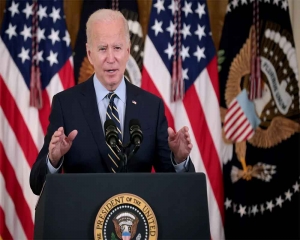From 2019, JEE Main exam will be conducted in two phases. RAMESH BATLISH tells aspirants what this means
From 2019, JEE Main will be conducted in two phases, the first for Admissions to BE/BTech from January 6-20, 2019 and the second phase for admissions to BArch/B Planning between April 6-20, 2019. After being taken over by National Testing Agency (NTA), there will be no major impact as far as the pattern of the exam is concerned. The exam will have the same papers as conducted by the CBSE until last year.
Except for the exam mode, the pattern remains unchanged. Paper-I will be completely held in computer based mode, and in Paper-II, Mathematics and Aptitude Test will be computer based whereas Drawing will be pen-and-paper based. All the multiple choice questions will carry 4 marks each for the right answer and negative marking of 1 mark for incorrect answer.
In JEE Main Paper-I, 30 MCQ’s will be asked from each subject (Physics, Chemistry and Mathematics) making it a total of 90 questions. The question paper will be available in English, Hindi and Gujarati (for students of Gujarat, Daman & Diu and Nagarhaveli). Paper-I will be conducted in two sessions per day and the candidates need to book their slots.
Paper-II includes a total of 82 questions. 30 MCQ’s in Mathematics section, 50 from Aptitude and 2 questions will be asked from drawing test. All the MCQ's carry 4 marks each (with -1 negative marking) and each drawing test question carries 70 marks.
Modifications
Early Mock Tests: The NTA has started student registration for JEE Main mock tests from September 1, 2018. Candidates will be able to practice with these tests to get a better understanding of the exam pattern, how to prepare and what to expect in the actual exam.
Common Service Centres : The authorities have set up 1.5 lakh CSCs across the country to help candidates in both urban and rural areas in application form filling and submission.
Age limit: The criteria of age limit has been removed from JEE Main 2019. Candidates who have passed their 10+2 in 2017, 2018 or are appearing in 2019 can apply for the exam, irrespective of their age.
More than one attempt: JEE Main 2019 will be held twice a year - the first time in January and the second time in April. Candidates can choose to appear for either one or both.
Revised Application fees: The application fees have been reduced for different categories for JEE Main 2019.
Mode of Test: JEE Main 2019 will be a computer-based test for Paper-I; however, for Paper-II, Mathematics and Aptitude will be in computer-based mode and Drawing will be in pen and paper mode. Paper-I will be in two shifts per day, whereas, Paper-II will be in one shift only.
Selection process
The NTA will announce the qualifying cutoff of JEE Main 2019 in the first week of May after the announcement of the result of the April exam. The results for the first exam will be announced on January 31, 2019. The results of JEE Main will be the scores obtained by the students in the exam they have appeared in January, April or both. The results will be devoid of ranks as it will be compiled on the basis of better scores of candidates appearing in both the exams.
Common rank list: The Common Rank List for JEE Main 2019 will be available in the first week of May after the declaration of the results of the April exam. The better of the scores of candidates who have appeared in both JEE Main January and April will be considered for the ranking purposes while the scores of the candidates who have appeared for just one exam will be used as it is. The common rank lists will denote the All India and Category ranks of the candidates in addition to the details of the candidates and marks obtained. The JEE Main rank will be the basis for admissions to the NITs, IIITs and GFTIs
Evaluation process
As the JEE Main 2019 will be held on different days and sessions, maintaining the equivalence among different sets of question papers comes to the fore. To ensure that no candidate is at a disadvantage or highly benefited, normalisation of marks will be enforced for the purpose of ranking. Students will be ranked on the basis of their percentile scores which will be calculated as per a pre-determined formula.
Percentile scores: Based on the relative performance of all the appearing candidates by transforming the scores into a common scale ranging from 100 to 0 for each session. Percentile Score shows the percentage of candidates who have scored equal to or below a particular percentile in an exam. It is the normalised score and not the raw scores. After normalisation, each topper of a session will get the same percentile of 100 which is the desirable one. Also the marks between the lowest and highest scores are also converted to the respective percentiles.
In case of percentile tie: When two or more candidates obtain equal percentile scores then ranking will be sorted depending on their percentiles in Mathematics, then Physics and then Chemistry. Even if the percentiles remain same, the older candidate will be ranked higher and same rank will be allotted to the candidates for a tie after this situation.
Compilation of scores: After the JEE Main I will conclude in January, the result that will be declared on January 31 will display the four NTA scores — for each of the three subjects (Mathematics, Physics, and Chemistry) and the total NTA score for that attempt. The scores will be the percentile scores calculated as mentioned above.
Second attempt compilation of NTA scores: The scores will again be calculated for the total and that of the three subjects individually as mentioned for the first attempt.
The writer is a FIITJEE Expert


























